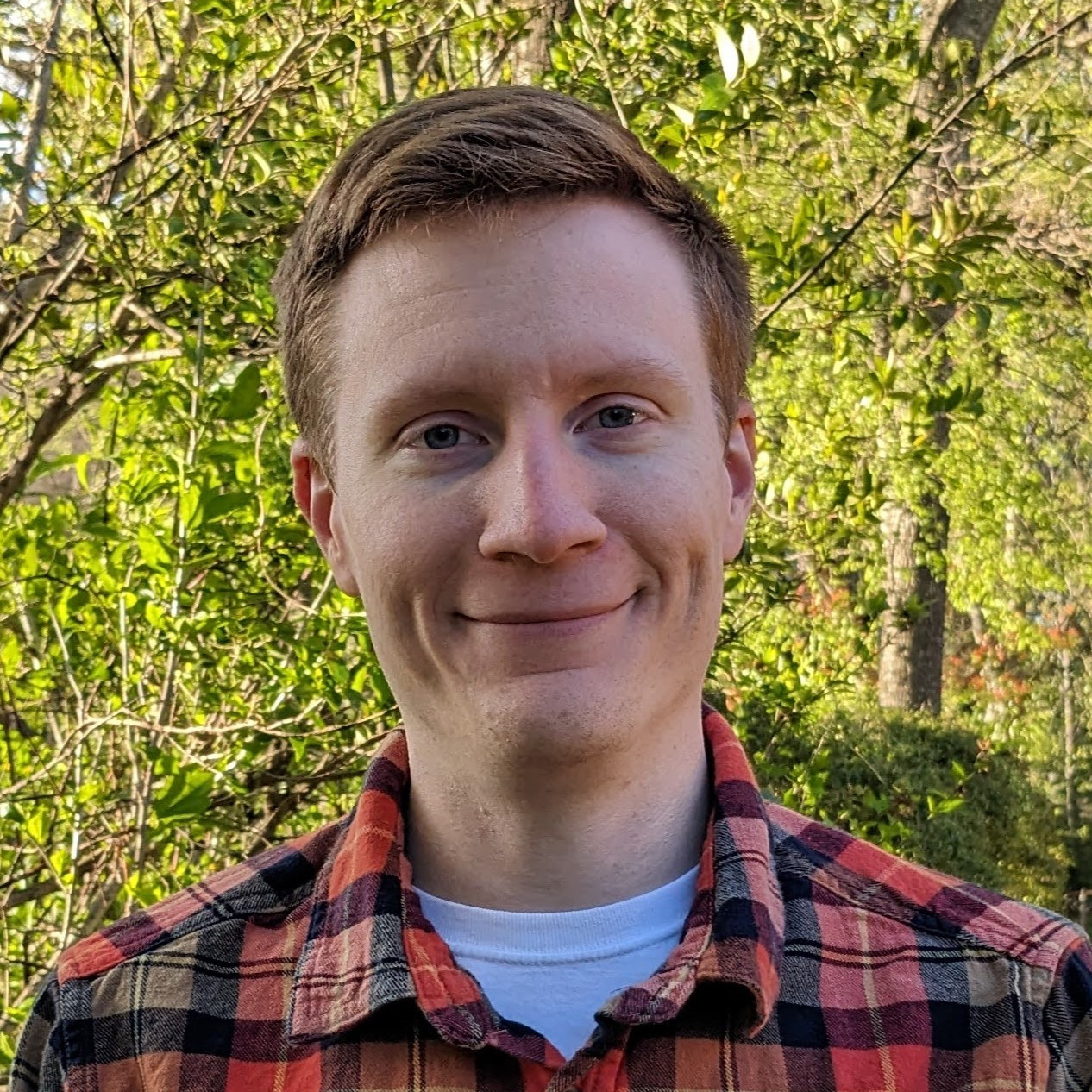Physics
Alumnus Spotlight — Kyle Moats

Featuring Alumni from the University of Memphis
Department of Physics and Materials Science
Kyle Moats is a native of Bartlett, TN. He graduated in 2018 from the University of Memphis with a M.S. from the Department of Physics and Materials Science. During his time at the UofM, in addition to completing the required courses, he applied methods in computational physics to the study of phase field crystals. After graduating, Mr. Moats has worked as a Radar Analyst with Signature Solutions and an Engineer with Conveyors International. He has varied work experiences, from working with telescope on Mauna Kea and sharing his passion and knowledge, to examining the flora of Hawaii.
Gustav Borstad: What piqued your interest in physics?
Kyle Moats: I have liked learning about nature for as long as I can remember. I grew up watching The Magic School Bus and Bill Nye the Science Guy. In elementary school I loved going to science club with Mrs. Faulks. I was lucky enough that my high school offered a conceptual physics course. It was mostly taught by entertaining video recordings of Dr. Paul Hewitt. Unfortunately there was not enough student interest for an AP Physics course for my class. The summer I graduated from high school, I read a book by Michio Kaku called The Physics of the Impossible. It contained a lot of fascinating ideas and left me with a sense that there was a lot left to explore.
GB: When did you know you wanted to study physics?
KM: I started at Christian Brothers University studying mechanical engineering. This felt somewhat inevitable since my father had worked as a machinist in that department for many years. I took Physics 101 from Dr. John Varriano who is a wonderful teacher. Then when I learned about differential equations from Dr. Leigh Becker, physics became much more interesting. I also had a talk with Dr. Becker where he impressed on me that I was there to learn, not just 'get a degree'. At that point I decided to switch majors. It may come as a surprise that math was always my worst subject. But I didn’t let that stop me from choosing to study physics. It just took a little determination to make it through.
GB: Were your classes and experiences, particularly at the undergraduate level (if
you have completed graduate studies), what you expected? Or were you surprised by
what you learned and experienced? If something about the Physics program at the University
of Memphis really impacted you positively, what was it and what effect did it have?
KM: One cool thing about the University of Memphis was that the students and faculty came
from many different backgrounds. There were a mix of students from Brazil, China,
Iran, and Nepal to name a few. As a native Memphian, It was interesting to be part
of that group. I have read that your native language, or speaking multiple languages,
affects the way you think and approach problems. I definitely believe that is true!
Some people might think you have to be a genius to learn about physics but, like any
subject, if you study enough you can probably do it. I never felt like I was in competition
with anyone at UofM; in fact, everyone was helpful and supportive.
GB: What are your past and current professional roles? Do you find that your preparation as a physicist has equipped you to pursue and succeed in your desired career path? Have you integrated physics with other skills and disciplines in an interesting or unique way that may inspire students to see physics and its possibilities in a new light?
KM: After I completed my bachelor’s degree I was able to leverage my engineering coursework to get a job as a manufacturing engineer. It was loud, dirty, and fairly low-tech. That wasn’t a great fit. After that I was able to work part-time at the NASA Infrared Telescope Facility in Hawaii, which was fun. But it became clear to me that job opportunities available with only a BS were limited, so I decided to pursue a Master’s at the University of Memphis. Soon after graduating I found my current job, where I’ve been for almost five years now. I work on an Army air defense program at Redstone Arsenal. I do a lot of programming, but I think of myself as a problem solver rather than a computer programmer.
GB: Do you have any advice or recommendations for a student who is considering physics
as a major?
KM: There seems to be an intensifying belief that education should be purely functional
with the aim of producing efficient workers. There is very little tolerance for anything
not completely utilitarian. This is a shame.
I would suggest that you always follow your interests. Try to have exposure to as
many different topics and experiences as possible. Being a well-rounded individual
will help you personally and professionally. I have seen a number of candidates interview
at my company, and the strongest ones have personal projects they work on outside
of structured environments like school.
From a practical standpoint, if you want to work in a technical field you must be
at least familiar with computer programming. I am thankful to Dr. Xiao Shen for giving me that advice. Seeing a simple simulation exercise ‘come alive’ really
sparked my interest in programming. It has proven to be by far the most important
and useful thing I learned at U of M.
GB: What is your background and what do you enjoy doing in your free time?
KM: I was born and raised in Bartlett, TN. I moved to Huntsville, AL with my wife Elizabeth in 2019. We have two little girls, Evelyn and Julia. I enjoy spending time with my family, gardening and home improvement. Feel free to connect with me on LinkedIn.
GB: Thank you for your time and for the lessons and experiences that you have shared.
